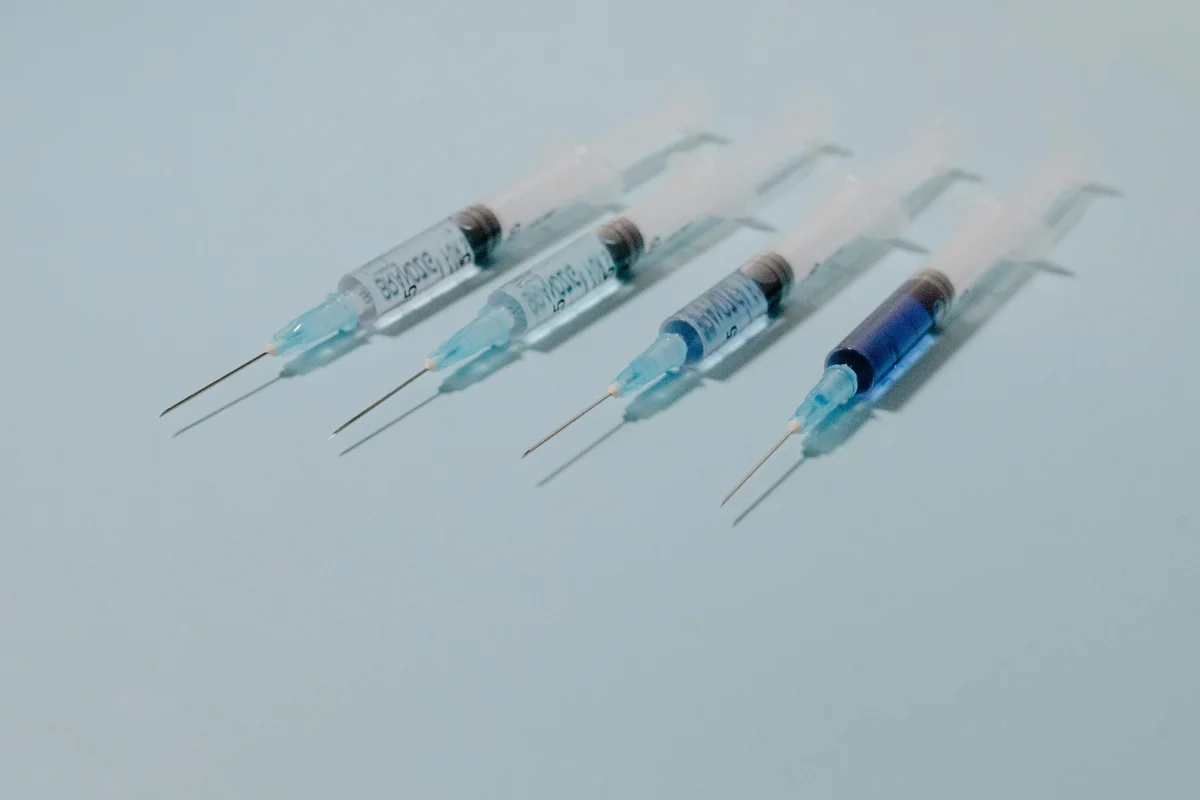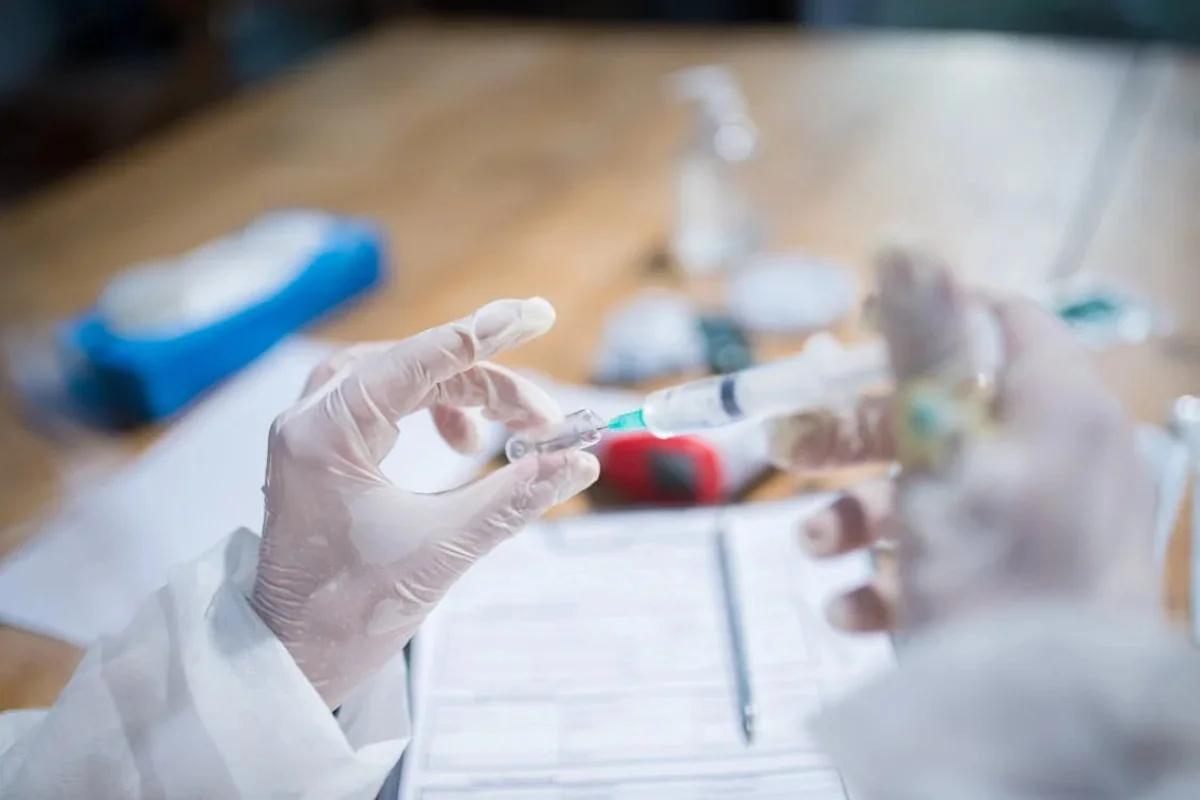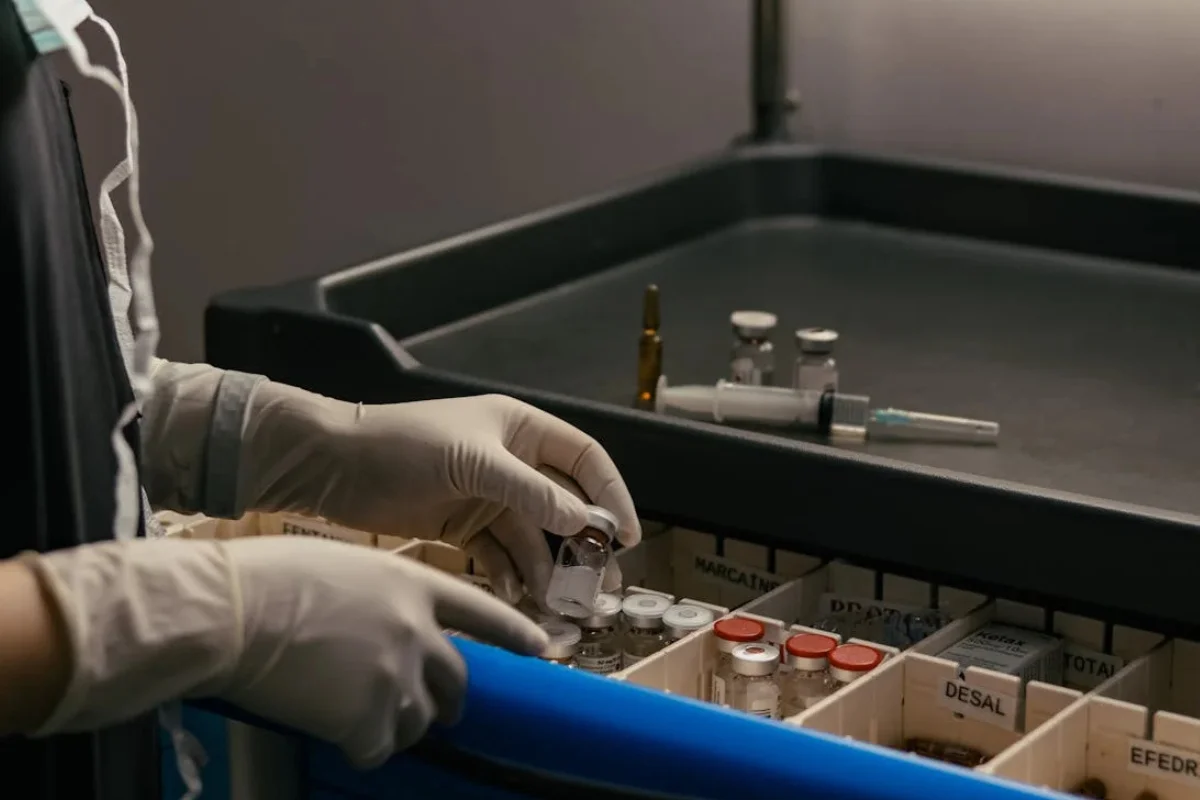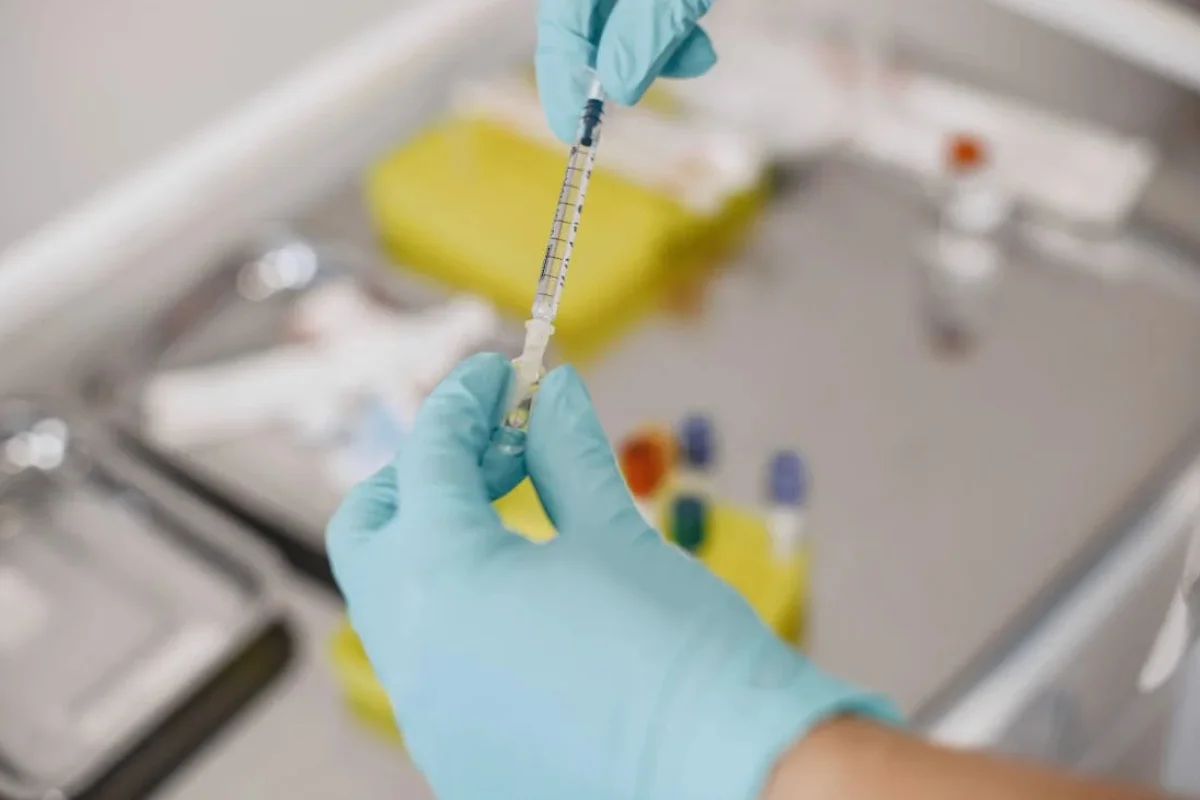[Disclaimer: This article is for informational purposes only and does not constitute legal or medical advice. The legal status of peptides can change with time and vary by jurisdiction. All About Peptides is not responsible for any legal or health consequences from using this article’s information.]
Lately, people have been talking about using peptides to build muscle or look younger, especially the community of bodybuilders and health enthusiasts in general.
But here’s the big question: Are peptides legal? Can you buy and use them without getting into trouble? We wish we could give you a simple yes or no answer, but it’s not that straightforward.
That’s why, in this article, we will dive deep into the legality and rules regarding the use of peptides. Let’s get started!
TL;DR – Are Peptides Legal?
The legality of peptides is complex and varies by country, specific peptide, and intended use.
Here’s a quick overview:
- USA: Most peptides are not FDA-approved for human use.
- Europe: Regulations vary by country.
- Australia: Possession without a prescription can lead to fines or jail time.
- Canada: Health Canada warns against unauthorized online sales.
- Sports: Use can lead to disqualification and bans.
- Military: Unauthorized use can end military careers.
Always check local laws and consult with a healthcare professional before using peptides. Legal status doesn’t guarantee safety or efficacy.

What Are Peptides?
Before discussing peptide regulations, it helps to understand what they are.
- Peptides are short chains of amino acids, the building blocks of proteins.
- They regulate vital body functions like cell signaling, tissue repair, hormone release, and metabolism.
- Both prescription peptide medications and special research-grade products are available. These are very different in regulation and oversight.
- Desired effects range from muscle growth to injury recovery, weight loss, anti-aging, and overall wellness.
Some well-known examples of peptides include:
- Insulin (INSL5): Regulates blood sugar levels.
- Collagen: Provides structure to skin, bones, and connective tissues.
- Growth Hormone-Releasing Peptides (GHRPs): Stimulate growth hormone production.
Note: Most peptides are still considered experimental and lack long-term safety data.

Prescription vs. Over-the-Counter Peptides
There are some differences between prescription peptide drugs versus supplements sold over-the-counter:
Prescription Peptides
These peptides have been approved by regulatory bodies (like the FDA in the USA) for specific medical uses.
They include:
- Insulin for diabetes management
- Tirzepatide for chronic weight management
- Semaglutide (Wegovy, Ozempic) for weight loss and type 2 diabetes
Prescription peptides are legal when prescribed by a licensed healthcare provider and used as directed.
Over-the-Counter Peptides
These include peptides found in supplements, skincare products, and those sold for research purposes.
Their legal status is often more ambiguous and can vary depending on:
- The specific peptide
- How it’s marketed
- Intended use
- Local regulations
Examples include:
- Collagen peptides in supplements
- Copper peptides in skincare products
- Research peptides like BPC-157 or TB-500

Legal Framework Surrounding Peptides
Laws and attitudes governing peptide access vary substantially worldwide.
Let’s break down regulations country by country:
Are Peptides Legal in the US?
The legal status of peptides in the United States is primarily governed by the Food and Drug Administration (FDA).
Here’s what you need to know:
- FDA-Approved Peptides: Some peptides, like insulin or semaglutide, are FDA-approved and legal with a prescription.
- Research Peptides: Many peptides are legally purchased for research purposes but not for human consumption. These are often labeled “for research use only” or “not for human use.”
- Dietary Supplements: Some peptides, like collagen, are legal as dietary supplements.
- Unapproved Peptides: It’s illegal to sell peptides that the FDA does not approve for human use. However, possession for personal use is generally not criminalized.
- State Laws: Some states may have additional regulations. For example, “Are peptides legal in California?” may have a slightly different answer than in other states, though federal law generally takes precedence.
The FDA has taken action against companies attempting to market peptides incorrectly. For example, in 2023, the FDA issued warning letters to several companies selling peptides as dietary supplements.
Are Peptides Legal in Europe?
The legal status of peptides in Europe varies by country and is generally more restrictive than in the US:
- European Union: The European Medicines Agency (EMA) regulates peptides similarly to the FDA. Many peptides require a prescription or are restricted to research use.
- United Kingdom: In the United Kingdom, the legal framework around peptides is particularly interesting:
- Possession: Most peptides are not illegal to possess for personal use.
- Sales: Selling peptides for human use without proper approval is illegal.
- Marketing: Advertising peptides for research purposes is generally allowed.
- Switzerland: Has its own regulatory body (Swissmedic) and tends to have stricter peptide regulations.
Laws can vary significantly between EU countries. Some may have stricter controls on certain peptides than others.

Are Peptides Legal in Australia?
The legal status of peptides in Australia falls into a bit of a grey area.
Here are the details:
- Not Approved for Human Use: Most peptides are not approved for human use by the Therapeutic Goods Administration (TGA), Australia’s regulatory body for medical products.
- Prescription Status: Peptides are classified as Schedule 4 prescription-only substances. This means they can’t be legally sold without a doctor’s prescription.
- Compound Pharmacies: Peptides are often prepared by compound pharmacists, which exempts them from normal TGA regulation of medicines. This loophole has contributed to their availability.
- Not Illegal for Personal Use: While not approved, it’s not illegal for regular people to buy and use peptides. However, this doesn’t mean they’re safe or recommended.
- Legal Action Against Peptide Clinics: In 2019, the TGA took significant legal action against Peptide Clinics Australia for alleged advertising breaches.
Are Peptides Legal in Canada?
Canada’s approach to peptides is similar to the US:
- Health Canada regulates peptides as drugs or natural health products.
- Many peptides are legal for research purposes but not for human consumption without approval.
- Some peptides are available with a prescription.
Health Canada has issued public advisories about unauthorized peptides sold online.
For example, in December 2023, Health Canada warned consumers about unauthorized injectable drug products sold online by Canlab Research. These products, promoted as peptides, may pose serious health risks.
The agency is working with the Canada Border Services Agency to prevent the importation of these unauthorized products.
Are Peptides Legal in Other Regions?
Asia-Pacific countries like New Zealand and Japan mirror Australia in only allowing government-vetted peptides for medical applications, although black markets influence due to lax enforcement.
South American countries range from more liberal countries like Brazil to stricter regimes in Chile, Argentina, and Colombia that limit peptide access. Prescriptions are common requirements. Enforcement varies.
Laws remain vague in many developing nations, especially online retail markets like Indonesia, Vietnam, and India. Regulatory risk depends on customs vigilance.

Peptides in Sports and the Military
Beyond medical applications, what about buying peptides explicitly to amplify athletic performance or military readiness?
Laws again tighten substantially for these contexts:
Are Peptides Legal in Sports?
The use of peptides in sports has clear regulations in place across most major sporting organizations.
The World Anti-Doping Agency (WADA) prohibits most peptides in competitive sports.
These regulations are outlined in the S2.2 section (Peptide Hormones, Growth Factors, Related Substances, and Mimetics) of WADA’s Prohibited List, which is updated annually.
Using banned peptides can lead to severe consequences for athletes:
- Stripping of medals or titles
- Disqualification from competitions
- Damage to professional reputation and career
- Bans from future competition, sometimes lasting several years
In some cases, athletes can get approval to use certain peptides for legitimate medical reasons. This process, known as a Therapeutic Use Exemption (TUE), is strictly controlled and monitored by sports governing bodies.

Are Peptides Legal in the Military?
The Department of Defense (DoD) prohibits the use of most peptide hormones. This prohibition is outlined in the list of DoD-prohibited dietary supplement ingredients.
The military’s stance on peptides is primarily driven by concerns about:
- Potential Health Risks: Many peptides can cause serious side effects, especially when used without medical supervision.
- Impact on Military Readiness: Adverse health effects could compromise service members’ ability to perform their duties.
The military also strictly forbids the use of peptides for performance enhancement, which aligns with its anti-doping regulations and ethical standards.
Using prohibited peptides can lead to the following:
- Disciplinary action
- Potential discharge from service
- Long-term impact on military career prospects
The DoD has an Operation Supplement Safety (OPSS) program that provides resources and information to help service members make informed decisions about supplement use.

Peptide Use in Clinical Settings vs. Athletic Performance Enhancement
Prescription peptide medicines must undergo extensive testing and verification to be approved. Health agencies want solid proof that these peptides are safe and effective before allowing them.
On the other hand, using peptides just to boost athletic ability has some problems:
- There is little research on how peptides affect long-term health and fitness training/competition, so the long-term impacts are unknown.
- Dosage guidelines mainly come from limited animal studies or people experimenting on themselves rather than thorough clinical studies.
- “Research only” peptides sold online do not follow the strict quality rules that medical products must follow, so their purity and strength are questionable.
- Ignoring sports bans on certain peptides threatens athletic careers. However, getting the required medical exception for peptide use is also extremely hard.

Consequences of Buying Illegal Peptides
There haven’t been many legal cases against individuals for personal use of peptides. The FDA tends to focus its enforcement efforts on manufacturers and suppliers rather than end users.
However, this doesn’t mean personal use is without risk. In some cases, possession without a prescription can result in fines or imprisonment.
Besides, you must be extra careful if you’re a military or sports personnel. You can face suspensions or disciplinary action.
How to Navigate the Legality of Peptides Responsibly
If you’re considering using peptides, here are some steps to ensure you’re doing so legally and safely:
- Seeking Medical Advice: Seek professional medical advice. Qualified doctors can prescribe approved peptides that match diagnosed conditions after considering the overall health impacts.
- Understanding Marketing Language: When buying without prescriptions, scrutinize marketing and labeling language. Phrases like “not for human consumption,” ”for research only,” etc. indicate products lack approval for health enhancements, which imposes greater legal and medical risks.
- Vetting Vendors Thoroughly: Investigate the reputation of vendors and their specific disclaimers around usage very thoroughly before purchasing overseas products online. Many hide behind fine print.
- Avoiding Athletic Enhancements: Avoid buying peptides to specifically enhance competitive athletic performances. Anti-doping agencies ban new peptides every day.

Frequently Asked Questions (FAQs)
Let’s address some common questions about the legality of peptides:
How Can I Verify the Legality of Peptides Before Buying?
To verify the legality of peptides:
- Check the FDA or relevant regulatory body’s website for approved peptides.
- Consult a healthcare professional or pharmacist.
- For athletes, check the WADA prohibited list or consult your sports organization.
Are Peptides Banned in Olympic Sports?
Yes, both the Olympics and Paralympics adopted the World Anti-Doping Agency’s prohibited substances list banning performance-enhancing peptides.
Can You Be Prosecuted for Using Peptides for Self-Enhancement?
Personal use is not criminalized in many jurisdictions, but selling or distributing unapproved peptides can lead to legal consequences.
However, laws can vary, and some regions may have stricter penalties even for possession.
Conclusion – Are Peptides Legal to Buy?
Peptides are exciting, but the laws surrounding them can be confusing. They’re often in a gray area — not fully legal but not always strictly illegal.
It depends on where you are and how you’re using them. In most places, you need a prescription for many peptides. Using them for professional sports is usually a big no.
PS — At All About Peptides, we’re here to help you understand peptides better. Our experts keep up with all the new research and rules, so you don’t have to.
Join our newsletter! We’ll show you how to use peptides safely to feel and perform your best. Let’s talk about how to boost your health with peptides!